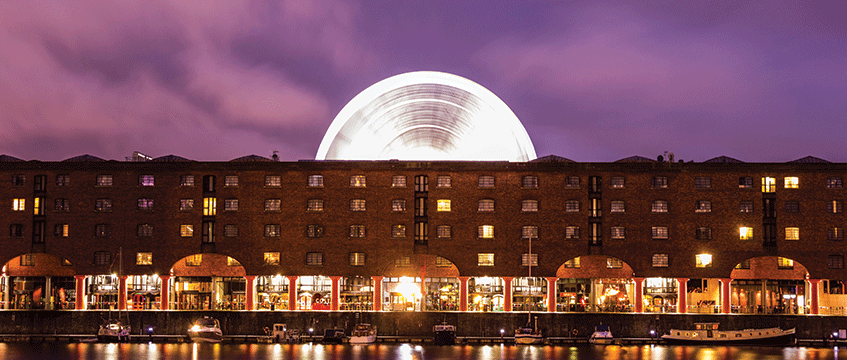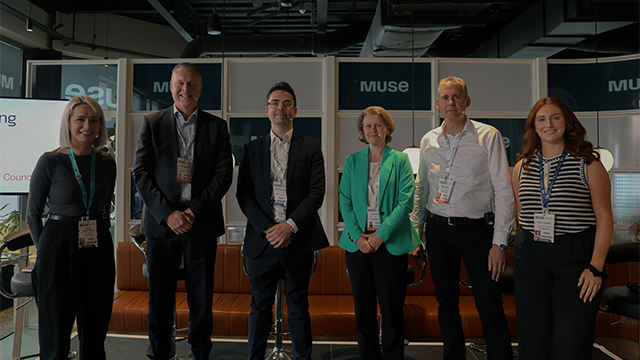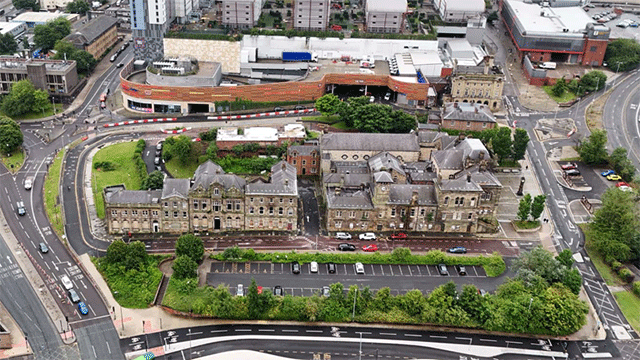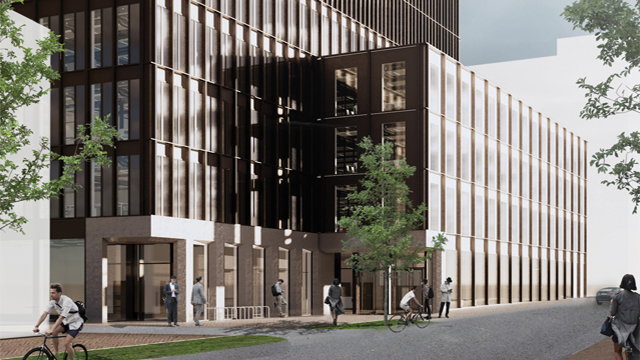Have perceptions of Liverpool changed over the past decade? Most definitely, reckons Avison Young principal Nicola Rigby: “Liverpool has gone from being a regional city, to a national city.” Like many living and working in Merseyside, she believes the award of Freeport status, granted to Liverpool earlier this year, will help propel the city to playing a larger role on a global stage.
Chief executive of Liverpool city council, Tony Reeves, believes it presents a great opportunity. “Liverpool is the gateway to North America, which is going to be an increasingly important market for the UK,” he says.
Rigby adds: “Freeport status gives longevity from a market perspective. One of the challenges of the Northern Powerhouse is giving identity to the extreme areas of it, for example Newcastle and Liverpool, how are the two going to connect? Freeport is one way they will connect from an economic perspective.”
Expert speakers
- Tony Reeves, chief executive, Liverpool City Council
- Colin Sinclair, chief executive, Knowledge Quarter Liverpool (KQ Liverpool) and Sciontec Liverpool
- Julie Johnson, chair of culture & commerce BID, Liverpool BID Company
- Stephen Cowperthwaite, chair of Liverpool Place Partnership and principle and managing director, Avison Young
- Nicola Rigby, principal, Avison Young
- Jonny Lowe, director, Avison Young
Liverpool’s innovative, risk-taking mentality is also getting the city noticed. During the pandemic, it demonstrated its ability to deliver world-leading health informatics. Reeves notes: “On the back of that, we have had significant international investment. We have recently launched a global pandemic institute which will collaborate with other institutions across the world to make sure that out of this crisis, something positive has come. We can use Liverpool’s strengths to better prepare the world to predict and to respond to any future pandemics – that will be a legacy for years to come.”
Centres of excellence
The new institute sits in the city’s Knowledge Quarter. KQ Liverpool is transforming almost half of the city centre into a district focused on health, education, science and technology. At the heart of the area is the new 160,000 sq ft The Spine, a world-class exemplar of innovative design. This “healthy” building is an example of how bold Liverpool is determined to be.
Colin Sinclair, chief executive of Knowledge Quarter Liverpool, says life sciences is a huge growth area for the city: “Some people talk about a golden triangle in terms of Liverpool, Manchester and Cheshire. And if you look at what we’re doing here in the Knowledge Quarter, here in Liverpool Science Park, at Paddington Village, you look at what goes on in the area known as the Manchester Corridor, around Manchester Science Park, Circle Square, City Labs. And then you look at Alderley Park, the Bruntwood SciTech site that was AstraZeneca’s headquarters, there’s an enormous amount of research and science and university and clinical start-ups and spin-outs.”

Meanwhile, in the city’s traditional office core, the pandemic has fuelled much debate over the future of flexible office space. Avison Young’s Big Nine office report says take-up during Q3 2021 reached its highest level since the onset of Covid, at 65,133 sq ft in the city centre and 34,415 sq ft out of town.
“We’re seeing [that a] hybrid model is here to stay,” says Avison Young director Jonny Lowe. “We’re seeing a move from occupiers across the spectrum into flex space while they go into an environment where they can plug and play, almost avoiding the [longer-term] decision for a year or so while they let things settle and decide how much space they will need.”
Julie Johnson, who sits on the board of the city’s expanded culture & commerce BID, believes talk of an office meltdown isn’t based on reality: “I’m a business owner at Moorcrofts Solicitors and we’ve got no plans to reduce our office space. In fact, we’re looking at expanding in Liverpool city centre. One of our oldest heritage buildings, Martins Bank Building, is being turned into different uses, including grade-A office space. So, for Liverpool, the message is different. We are filling our offices and using them for different things. Some buildings won’t just be office blocks. There will be retail as well and also leisure.”
Be brave, be bold
Stephen Cowperthwaite, chair of Liverpool Place Partnership and principal/managing director at Avison Young, agrees and notes that the retail sector is reviving: “The Met Quarter here has repurposed itself, brought in independents and the Liverpool Media Academy upstairs. It’s a really good example of repurposing an existing shopping centre asset. This LMA deal is 50,000 sq ft, a huge investment that took place during the pandemic.”
Cowperthwaite adds: “What’s important is having a good blend of the independents who give that vibrancy and currency that local people can engage with. Liverpool’s recovery has been really strong compared to other cities. Spend levels are ahead of where they were pre-pandemic.”
Liverpool is a city where actions speak louder than words. So, what has it learnt over the past 18 months? KQ Liverpool’s Sinclair summarises: “What Liverpool has learnt is ‘don’t just talk about it, do it.’ Lead by example. We have learnt that you have to be bold. And if you’re bold, set yourself an amazing vision, go for it and don’t be deflected.”
City remains defiant over UNESCO ruling
Liverpool was stripped of its UNESCO World Heritage status in July following a decision by a United Nations committee, which said it thought certain developments – including the proposed new Everton FC stadium – threatened the value of the city’s waterfront.
Liverpool City Council chief executive Tony Reeves doesn’t pull any punches with his view on the decision. “They’ve got this totally wrong. We are talking about 50ha of derelict dockland that nobody’s been able to access for 40 years and without the developments that are proposed, would not be able to access in the next 40 years because there wouldn’t be a viable way of taking those forward.
“There was a very narrow view of heritage considered by UNESCO. Since we were granted World Heritage status in 2004, Liverpool has spent about £800m on investing in heritage in the city and the heritage offer of the city has gone up exponentially over that period.”
Reeves claims the loss of the UNESCO status has “had no impact” on footfall figures and adds: “The door is always open to consider further discussions with them.”












